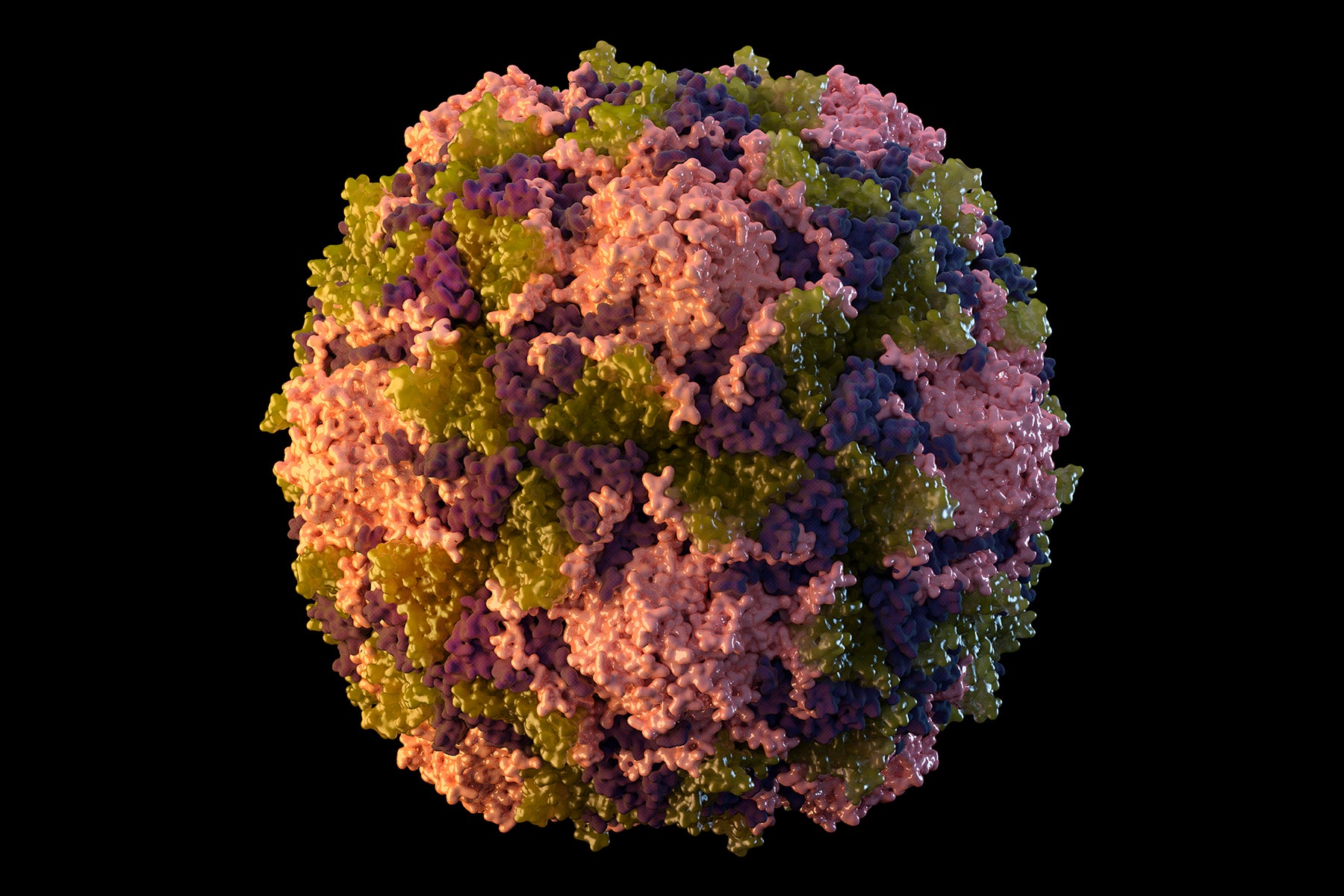Children aged 1 to 9 in London to be offered polio vaccine as rare infection spreads
116 samples of vaccine-like poliovirus detected in London sewage water between February and July 2022, health officials say

All children aged one to nine in greater London are to be offered a vaccine booster against poliovirus in a bid to limit and contain the spread of the capital’s outbreak.
Some 116 samples of vaccine-like poliovirus were detected in the sewage water of eight London boroughs between February and July 2022, according to the UK Health Security Agency (UKHSA). Typically, up to three samples are identified across England each year.
UKHSA said that only a handful of the virus samples have acquired sufficient mutations to be classified as vaccine-derived poliovirus (VDPV2), which, like “wild” polio, is capable of causing paralysis in unvaccinated individuals.
But with the virus now spreading in parts of London, officials have decided to offer a precautionary booster jab to all children aged one to nine in the capital, with the NHS hoping to have completed the rollout within the next four to six weeks.
“No cases of polio have been reported and for the majority of the population, who are fully vaccinated, the risk is low,” said Dr Vanessa Saliba, a consultant epidemiologist at UKHSA.
“But we know the areas in London where the poliovirus is being transmitted have some of the lowest vaccination rates. This is why the virus is spreading in these communities and puts those residents not fully vaccinated at greater risk.”
Officials will begin offering an inactivated polio vaccine (IPV) booster dose in those parts of the capital where the virus is being transmitted and uptake is low.
At least one positive sample of poliovirus has been identified in Barnet, Brent, Camden, Enfield, Hackney, Haringey, Islington and Waltham Forest, UKHSA said.
London has one of the lowest vaccination rates in the country: 71.4 per cent of children aged five or under are fully protected against the virus. In some boroughs, the coverage rate is as low as 54.2 per cent.
Polio shots are given in routine NHS childhood vaccinations at eight, 12 and 16 weeks as part of the 6-in-1 vaccine. Boosters are offered at the age of three and 14.
Jane Clegg, chief nurse for the NHS in London, said: “While the majority of Londoners are protected from polio, the NHS will shortly be contacting parents of eligible children aged one to nine years old to offer them a top-up dose to ensure they have maximum protection from the virus.
“We are already reaching out to parents and carers of children who aren’t up to date with their routine vaccinations, who can book a catch-up appointment with their GP surgery now and for anyone not sure of their child’s vaccination status, they can check their Red Book.”
People who are not fully vaccinated are more vulnerable to symptomatic infection. While there have been no cases of paralytic polio in the UK, UKHSA officials fear this could change if the virus is allowed to further spread in low-coverage boroughs within London.
New York is similarly grappling with its own outbreak and announced earlier this month that an unvaccinated adult had caught the virus and suffered paralysis.
UKHSA said the case was genetically linked to the poliovirus samples discovered in London. However, it said the route of transmission was unclear, making it impossible to determine where the virus first emerged. Israel has also detected a number of poliovirus cases.
People vaccinated with the live oral polio vaccine (OPV), which has not been used in Britain since 2004, can briefly shed traces of the vaccine-like poliovirus in their faeces.
Samples of this kind are detected up to three times a year in UK sewage, likely from people inoculated overseas, and are considered normal, the UKHSA said.
However, the viral samples found earlier this year at London Beckon Sewage Works, which covers four million people across the northeast of the capital, appear to be related and share mutations, suggesting the virus is spreading and evolving.
This type of poliovirus – VDPV2 – can cause serious illness, including paralysis, in unvaccinated people, as seen in New York.
It’s likely the UK’s recent outbreak was triggered after a person vaccinated with the OPV in an overseas country began shedding the virus in London. From there, it may have then spread within a single family before transmitting more widely across a community.
UKHSA, working with the medicines regulator, has already increased sewage surveillance to assess the extent of the spread of the virus in London.
Up to 15 sites will meanwhile be stood up nationally to determine if poliovirus is spreading outside of London.
The last case of wild polio contracted in the UK was confirmed in 1984 and the UK was declared free of the virus in 2003. Afghanistan and Pakistan are the only two countries in the world where the infection is still classified as endemic.
Join our commenting forum
Join thought-provoking conversations, follow other Independent readers and see their replies
Comments


Bookmark popover
Removed from bookmarks